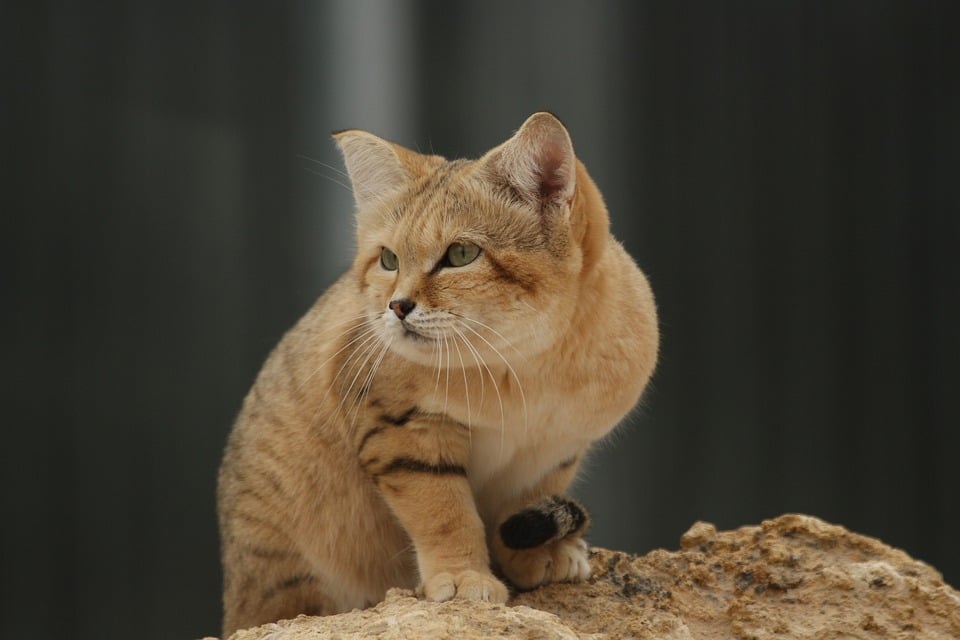Preventing and Managing Kidney Disease in Cats: A Comprehensive Guide
Introduction:
Understanding the importance of kidney health in cats
The prevalence of kidney disease in felines
The significance of prevention and early detection
I. Understanding Kidney Disease in Cats
Functions of the kidneys in cats
Causes and risk factors of kidney disease in felines
Differentiating between acute and chronic kidney disease
II. Prevention of Kidney Disease in Cats
Importance of a balanced diet for kidney health
Choosing the right cat food: low phosphorus and high-quality protein
Adequate hydration: encouraging water intake
Monitoring weight and maintaining a healthy body condition
Regular veterinary check-ups and kidney function tests
III. Managing Kidney Disease in Cats
Diet modifications for cats with kidney disease
Prescription diets: benefits and considerations
Dietary supplements to support kidney function
Medications for managing symptoms and slowing disease progression
The role of fluid therapy and subcutaneous fluids
Lifestyle adjustments to minimize stress and support kidney health
IV. Frequently Asked Questions (FAQs)
1. What are the early signs of kidney disease in cats?
2. Can kidney disease in cats be cured?
3. What is the recommended diet for cats with kidney disease?
4. How can I encourage my cat to drink more water?
5. Are there any natural remedies or supplements that can help with kidney disease in cats?
6. How often should I take my cat to the vet for kidney function monitoring?
7. Can kidney disease in cats be prevented entirely?
8. Are there any specific breeds that are more prone to kidney disease?
9. Is there a link between dental health and kidney disease in cats?
10. What is the average life expectancy of a cat with kidney disease?
Conclusion:
The significance of proactive measures in preventing and managing kidney disease in cats
The partnership between cat owners and veterinarians in ensuring optimal kidney health
Empowering cat owners with knowledge to provide the best care for their feline companions.
Kidney disease is a common and serious condition that affects cats of all ages. The kidneys play a crucial role in maintaining a cat’s overall health, as they filter waste products and toxins from the blood, regulate fluid balance, and produce important hormones. Understanding the importance of kidney health in cats is essential for cat owners to provide the best care possible.
Unfortunately, kidney disease is prevalent in felines, with studies suggesting that up to 30% of cats over the age of 10 may be affected. This chronic condition can lead to significant health issues and even be life-threatening if not managed properly. Therefore, prevention and early detection are crucial in ensuring the well-being of our feline companions.
Understanding kidney disease in cats starts with recognizing the functions of the kidneys. These vital organs are responsible for filtering waste products and excess fluids from the blood, maintaining electrolyte balance, and producing hormones that regulate blood pressure and red blood cell production.
Several factors can contribute to the development of kidney disease in cats. These include age, genetics, urinary tract infections, high blood pressure, certain medications, and underlying health conditions such as diabetes or hyperthyroidism. Differentiating between acute and chronic kidney disease is important, as the treatment and management strategies may vary.
Prevention plays a crucial role in maintaining kidney health in cats. A balanced diet is essential, with a focus on low phosphorus content and high-quality protein. Cat owners should choose cat food that meets these criteria and consult with their veterinarian for specific dietary recommendations.
Hydration is another key aspect of kidney health. Cats are naturally prone to dehydration, so encouraging water intake is vital. Providing fresh water in multiple locations, using water fountains, or adding wet food to their diet can help increase water consumption.
Monitoring weight and maintaining a healthy body condition is important in preventing kidney disease. Obesity can put additional strain on the kidneys, so cat owners should ensure their cats are at a healthy weight and engage in regular exercise.
Regular veterinary check-ups and kidney function tests are crucial in detecting kidney disease early. Blood tests, urine tests, and blood pressure measurements can help identify any abnormalities and allow for timely intervention.
Managing kidney disease in cats involves several strategies. Diet modifications are often necessary, with prescription diets formulated specifically for cats with kidney disease. These diets are designed to minimize the workload on the kidneys and provide adequate nutrition.
Dietary supplements such as omega-3 fatty acids and antioxidants can also support kidney function and slow disease progression. However, it is essential to consult with a veterinarian before starting any supplements.
Medications may be prescribed to manage symptoms and slow the progression of kidney disease. These may include medications to control blood pressure, reduce protein loss in the urine, or manage symptoms such as nausea or anemia.
Fluid therapy, including the administration of subcutaneous fluids, can help maintain hydration and support kidney function. This may be recommended for cats with more advanced kidney disease.
Lifestyle adjustments, such as minimizing stress and providing a calm environment, can also support kidney health in cats. Stress can exacerbate kidney disease, so creating a peaceful environment can have a positive impact.
Frequently Asked Questions (FAQs) provide additional information and address common concerns that cat owners may have regarding kidney disease in their feline companions.
In conclusion, preventing and managing kidney disease in cats requires a proactive approach from cat owners and collaboration with veterinarians. By understanding the importance of kidney health, implementing preventive measures, and seeking early detection and appropriate management strategies, cat owners can provide optimal care for their beloved feline companions. Empowering cat owners with knowledge about kidney disease is essential in ensuring the well-being and longevity of their cats.








